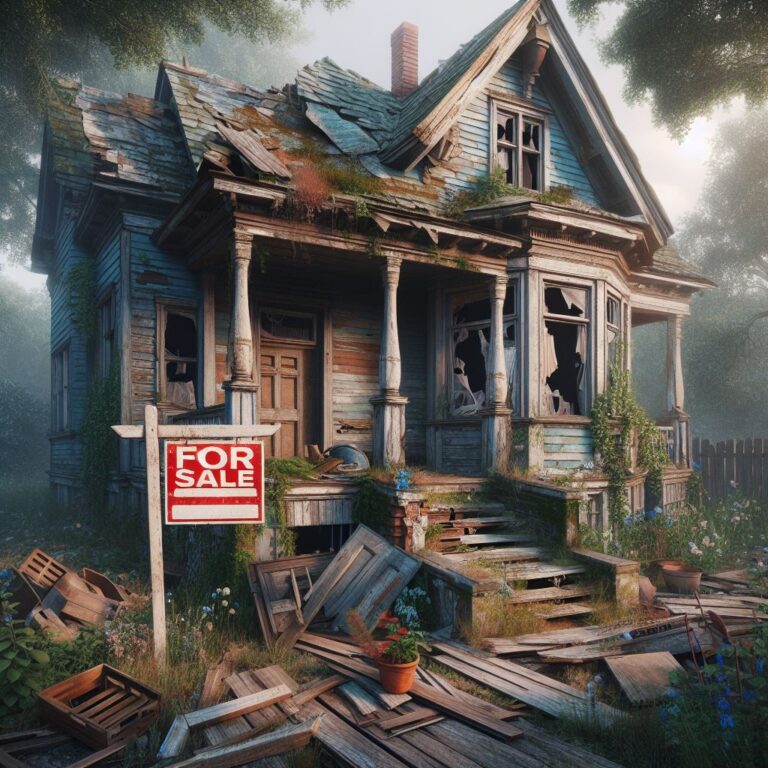Are you ready to embark on a journey of selling your historic property? Selling a historic property is like uncovering a hidden treasure, with its rich history and unique charm. Just like an old book that captivates readers with its fascinating story, your historic property has its own tale to tell.
But how do you ensure that potential buyers appreciate the value of your property's heritage? By doing your research, crafting a compelling narrative, and showcasing the property's historical significance, you can attract buyers who share your love for preserving the past.
With the right strategy and the help of an experienced real estate agent, you can successfully sell your historic property and pass on its legacy to the next owner.
Key Takeaways
- Find a real estate agent who specializes in selling historic properties and has a proven track record in this area.
- Preserve the original architectural details and unique features of the property.
- Make modern updates to key areas such as bathrooms and kitchens while maintaining period-appropriate decor.
- Consider implementing a preservation easement to protect the property's historical significance.
Finding the Right Agent
When selling historic property, it's important that you find the right agent who specializes in selling historical homes. Selling a historic home requires a unique set of skills and knowledge that not all real estate agents possess. By working with an agent who's experience in selling historic properties, you can ensure that your home is marketed effectively to potential buyers who appreciate its historical significance.
A specialty real estate agent who focuses on historic real estate will have a deep understanding of the unique challenges and opportunities that come with buying and selling historic houses. They'll be familiar with the local market and have connections to buyers and sellers who are specifically interested in historic homes.
When choosing a real estate agent for selling your historic property, it's crucial to verify their track record with historic home sales. You want an agent who's successfully sold similar properties in the past and has a proven strategy for preparing historic homes for the market. Ask them about their approach to pricing the home and how they plan to market its historical value to potential buyers.
Preserving the Property's Charm
To preserve the property's charm, focus on maintaining the original architectural details and unique features that make the home special. Historic homes have a rich history and unique character that can be appealing to potential buyers. When selling a historic property, it's important to highlight and preserve its charm to attract the right buyer.
Firstly, avoid renovating in a way that removes or covers up historic features. This means being cautious about tearing down walls, replacing original windows, or removing decorative elements that contribute to the home's historic character. Instead, embrace these features and showcase them to potential buyers as part of the home's unique charm.
Secondly, don't follow current interior design trends that may not be suitable for a historic home. While it may be tempting to modernize the property, it's crucial to preserve its authenticity. Stick to period-appropriate decor and furnishings that complement the home's architectural style. This will help maintain the historic feel of the property and appeal to buyers who appreciate its unique character.
Lastly, it's essential to comply with local historic preservation ordinances and regulations. Consult with a local agent who specializes in historic properties and is familiar with these regulations. They can guide you through the process and ensure that any changes or renovations made to the property are in line with the local guidelines.
Additionally, reach out to the local Historical Society for guidance and support. They can provide valuable information about the history of the property and offer advice on how to preserve its charm. This collaboration can help attract potential buyers who are interested in the historical significance of the home.
Making Modern Updates for Key Areas
Update key areas of the historic property to modernize and enhance functionality for potential buyers.
When selling a historic property, it's important to make modern updates to key areas of the home. Buyers are often looking for a balance between the charm and character of a historical property and the convenience and functionality of a modern home. By updating key areas such as the bathrooms and kitchens, you can appeal to a wider range of potential buyers and increase the value of the property.
Start by working with contractors who are familiar with historic properties. They'll have the expertise to preserve the historical integrity of the home while making necessary updates. Upgrade the heating and cooling systems to ensure the home is comfortable year-round. Replace non-functioning kitchen appliances with stainless-steel devices, which aren't only functional but also add a touch of modern elegance.
When updating the bathrooms and kitchens, consider repainting cabinets or walls and look for vintage items that match the historic design. This will help maintain the historical charm while incorporating modern functionality. It's also important to have a thorough home inspection to identify any potential issues and address them before putting the property on the market.
By making these modern updates to key areas of the historic property, you can attract potential buyers who are looking for the perfect blend of historical charm and modern convenience. Working with a local real estate agent who specializes in older homes can also help you market the property effectively and find the right buyers.
Don't miss out on the opportunity to enhance the value and appeal of your historic property through strategic modern updates.
Protecting the Property's Character With an Easement
Consider implementing a preservation easement to safeguard the property's character when selling a historic property. Protecting the unique architectural features and quirks of a historical property is crucial to maintaining its value and appeal.
A historic home requires special attention when it comes to selling it in the real estate market. By placing an easement on the property, you can ensure that future owners will be obligated to preserve its historical significance.
An easement is a legal agreement that restricts certain alterations and renovations to the property. It serves as a protective measure to prevent any modifications that may compromise the property's character. While it may limit some flexibility for future owners, it also guarantees that the historical integrity of the home will be preserved.
One of the benefits of incorporating an easement is the potential for tax benefits. By donating an easement to a qualified organization, such as the National Trust for Historic Preservation, you may be eligible for a charitable deduction on your federal income taxes. However, it's important to note that implementing an easement may also lower the value of the home. Some buyers may be deterred by the restrictions, and it's essential to work closely with a local agent who specializes in selling historical properties to navigate this process.
When selling a historical property, it's essential to emphasize the property's character to attract the right buyer. Showcasing the unique features and architectural elements can inspire potential buyers to make competitive offers. By implementing a preservation easement, you can provide assurance that the property's historical significance will be preserved for future generations.
Highlighting the Property's History
When selling a historic property, it is important to showcase its rich history and notable former owners, creating a sense of connection and appeal for potential buyers. Highlighting the property's history not only adds to its charm and character but also attracts buyers who are interested in preserving history. To effectively highlight the property's history, you can utilize various strategies.
First, consider working with a local agent who specializes in selling historic properties. They will have a deep understanding of the local historic district regulations and can guide you through the process of listing your property on the National Register of Historic Places, if applicable. Being listed on the register can significantly increase the property's appeal and value.
Next, research and gather information about the property's past owners and any significant events that may have taken place there. Create a compelling narrative that tells the story of the property, incorporating historical photos and documents to enhance the sense of connection to the past.
One effective way to present this information is through a table that showcases the property's history. Here's an example:
| Former Owners | Notable Events |
|---|---|
| John Smith (1850-1875) | Property was used as a stop on the Underground Railroad. |
| Mary Johnson (1890-1920) | Hosted social gatherings frequented by local artists and writers. |
| Robert Thompson (1950-1975) | Renovated the property, preserving its original architectural features. |
By highlighting the property's history in this way, you create a visual representation that adds depth and meaning for potential buyers. It allows them to imagine themselves as part of the property's story and fosters a sense of pride and connection to its past.
Additionally, it is important to inform potential buyers about any tax credits or incentives available for owning and maintaining historic properties. These benefits can make the property more financially attractive and encourage buyers who are interested in historic homes.
Frequently Asked Questions
How Do You Market a Historic Property?
To market a historic property, highlight its unique historical features and architectural details. Target history enthusiasts and preservation organizations. Stage the home with period-appropriate decor. Use specialty real estate websites and social media. Consult an experienced agent for tailored marketing.
What Are the Cons of Owning a Historic Home?
Owning a historic home has cons to consider. Renovations can be costly. Preservation restrictions may limit your renovations. Heating and cooling systems may need upgrading. Financing options can be challenging. Unique characteristics may not be appreciated by all.
Do Old Houses Hold Their Value?
Old houses hold their value well due to their unique charm and historical significance. Preserving historical features and upgrading key areas can enhance value. Proper staging attracts buyers who appreciate the home's uniqueness.
What Does Historic Mean in Real Estate?
Historic in real estate refers to properties that have significant historical value. These properties are officially designated based on criteria such as age, significance, and integrity. They retain their historical appearance and are associated with important events or figures.






